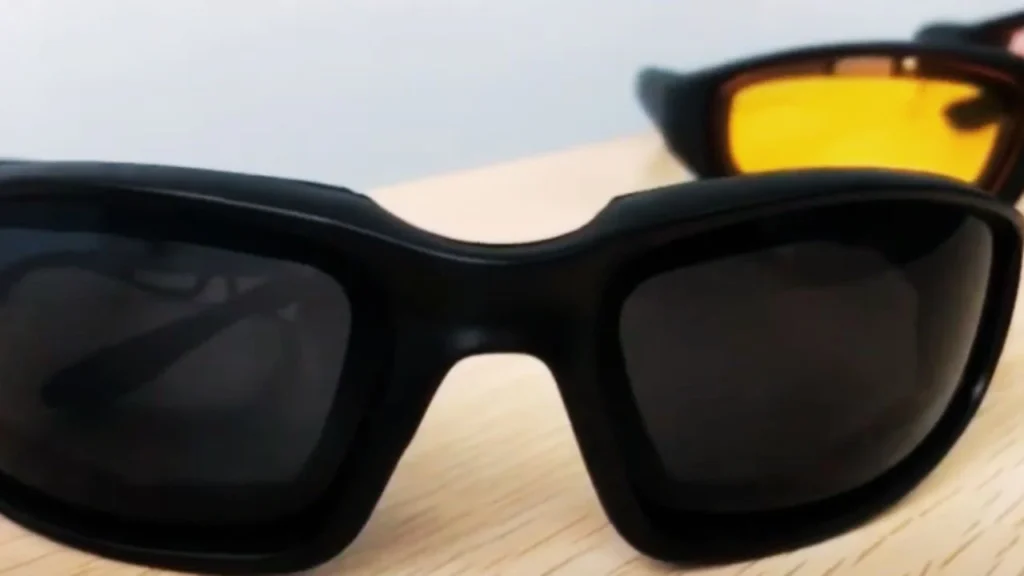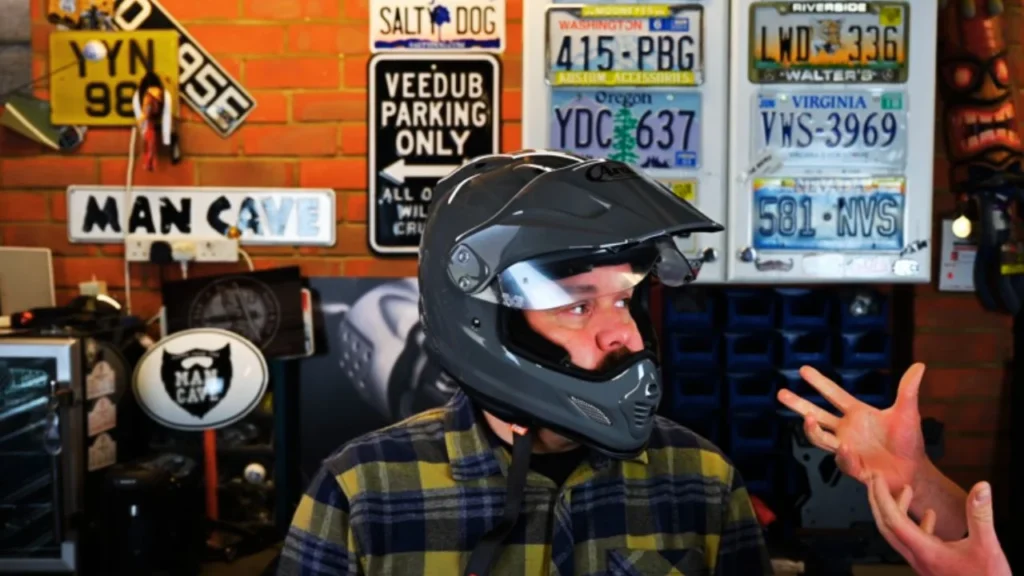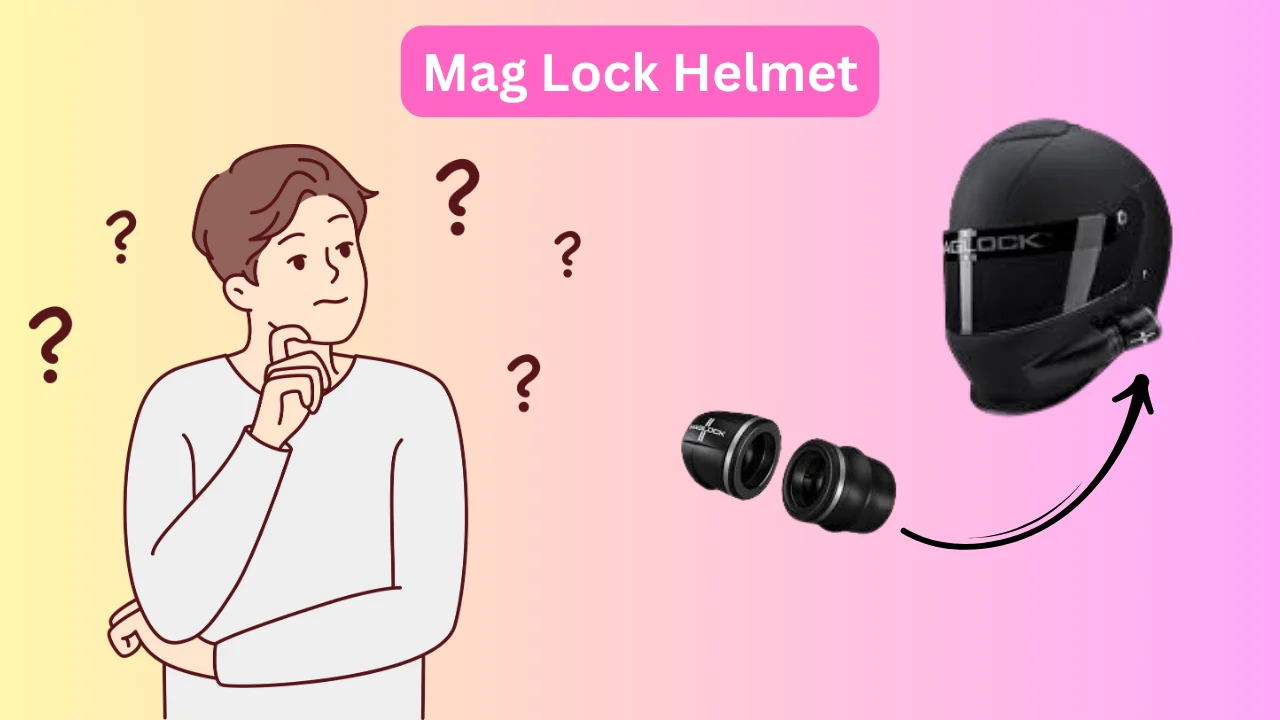Does Florida have a motorcycle helmet law? Yes, it does, but the rules are quite flexible compared to some other states.
When I first started riding in Florida, I was excited to enjoy the freedom of the open road, but I quickly realized how important it was to understand the helmet laws to stay safe—and avoid fines!
In Florida, helmet use is mandatory for some riders, but others have the option to ride without one if they meet specific insurance requirements.
Quick Fix
Does Florida have a motorcycle helmet law? Yes, Florida has a motorcycle helmet law, but it’s more flexible than many other states. Riders under 21 must wear a helmet at all times, while those over 21 can go helmet-free if they have at least $10,000 in medical insurance.
Despite the legal option to ride without one, helmets reduce head injury risk by 37%, according to the National Highway Traffic Safety Administration (NHTSA).
Following safety guidelines like wearing eye protection, adhering to traffic laws, and ensuring proper insurance coverage helps keep riders safe on Florida roads.
Florida’s Motorcycle Helmet Law
When I first got my motorcycle license, I was under 21, which meant I didn’t have a choice—helmets were required at all times.
But after I turned 21, I was faced with the decision: ride with or without a helmet. Florida allows riders over 21 to go helmet-free, provided they carry at least $10,000 in medical insurance.
I chose to stick with a helmet anyway because, honestly, the risks of not wearing one didn’t seem worth it to me.
According to Florida Statute 316.211, If you’re riding a motorcycle in Florida, here’s what you need to know:
- Riders under 21 must wear helmets at all times, no exceptions.
- Riders over 21 can legally ride without a helmet, but only if they have proof of at least $10,000 in medical insurance to cover injuries from accidents.
I found this flexibility quite surprising when I first learned about it, especially compared to other states like Does Tennessee have a helmet law for motorcycles, where helmets are required for all riders regardless of age or insurance status.
Eye Protection Requirement in Florida
Even if you decide not to wear a helmet (and I always recommend you do), Florida requires all riders to wear some form of eye protection, such as:
- Goggles
- Face shields
- Windshields

I can’t count how many times eye protection has saved me from debris, bugs, or just the blinding sun. After all, you can’t avoid what you can’t see! This is a mandatory part of the law, and in my personal experience, it’s just common sense.
Why Should You Wear a Helmet
For me, it wasn’t just about following the law. It was about staying safe. Helmet use reduces the risk of head injuries by 37%, according to the National Highway Traffic Safety Administration (NHTSA). While Florida gives me the option to ride without a helmet, I always remind myself of the dangers. Riding without a helmet, especially at high speeds, isn’t worth the risk.

In case you’re curious, it’s always worth checking out if Does motorcycle helmet expire since helmets do have a lifespan, and using an old, degraded helmet won’t give you the protection you need.
Helmet Law Compliance and Penalties
Not complying with Florida’s helmet law can lead to fines and other penalties:
- Non-compliance could cost you over $100 in fines.
- It could also impact your insurance premiums if you’re in an accident.

I’ve always made it a point to stay within the law. Fines and higher insurance premiums aren’t worth skipping a helmet when I know how much protection it offers.
What About Motorcycle Insurance?
Florida’s helmet law doesn’t just end with helmets. If you choose to ride without one and you’re over 21, you’re required to have at least $10,000 in medical insurance. When I was first debating whether to ride without a helmet, I asked myself: Would $10,000 cover the kind of injuries a motorcycle accident might cause? The truth is, serious accidents often result in bills much higher than that.

When you’re considering whether Is it legal to ride a motorcycle without a helmet, make sure you’re aware of the financial and medical risks.
Which Helmet is Right Fit For You?
Choosing not to wear a helmet might seem like an individual decision, but it comes with serious financial consequences. Medical bills for motorcycle-related injuries can exceed $30,000 for non-helmeted riders, and these costs become an out-of-pocket burden.

Riding without a helmet also increases the risk of head injuries, which often result in long-term disabilities.
If you’re unsure about which helmet to buy, it’s crucial to understand How is a motorcycle helmet supposed to fit. A proper fit ensures maximum protection and comfort during long rides.
When I first bought a helmet, I didn’t realize how important a good fit was. A poorly fitting helmet won’t give you proper protection. Here’s what I learned about finding the perfect fit:
- The helmet should fit snugly without causing discomfort.
- It should sit low on your forehead, about an inch above your eyebrows.
- You shouldn’t be able to move it easily from side to side.
Motorcycle Accident Statistics in Florida
Here’s something that really hit home for me: Florida had over 600 motorcycle fatalities in 2020. Many of these fatalities were linked to riders not wearing helmets. It’s an eye-opening number and one that really solidified my decision to always wear my helmet, even though the law allows me to ride without one.

Helmet Laws in Other States: A Comparison
I’ve ridden in several other states, and Florida’s laws are definitely more lenient. For example:
- In Does Tennessee have a helmet law for motorcycles, helmets are required for all riders.
- In California, everyone, regardless of age, must wear a helmet.
Florida’s more relaxed approach to helmets might appeal to some, but I’ve learned that riding safely and wearing protective gear should be a priority—no matter where you are.
Public Opinion and Debate on Florida’s Helmet Law
There’s a lot of debate over whether Florida’s flexible helmet law is a good idea. Many riders enjoy the freedom of choosing whether to wear a helmet, while others, including safety experts, argue that stricter regulations would save lives.
Personally, I think the choice should ultimately be about safety and personal responsibility. From what I’ve seen in polls, Floridians seem split on the issue, but many agree that helmets do reduce fatalities.
Safety Guidelines for Riding a Motorcycle in Florida
- Always Wear a Helmet: Even though Florida law allows some riders to go without a helmet, it’s safer to wear one. Helmets reduce the risk of head injury by 37%.
- Use Eye Protection: Eye protection is mandatory for all riders in Florida. Goggles or a visor can help protect your eyes from debris and harsh weather.
- Check Insurance Coverage: If you choose not to wear a helmet, make sure you have the required $10,000 in medical insurance to cover accident-related injuries.
- Wear Protective Gear: Gloves, boots, and a sturdy jacket can protect you from road rash or more serious injuries in the event of a crash.
- Follow Speed Limits and Traffic Laws: Speeding and ignoring traffic rules increase the risk of accidents.
- Stay Visible: Use bright or reflective clothing, and always use your headlights, even during the day.
- Check Your Motorcycle Regularly: Ensure your brakes, lights, and tires are in good working condition before every ride.
By following these guidelines, you’ll be safer on the road and reduce the risk of injury or legal trouble while riding in Florida.
Conclusion
So, does Florida have a motorcycle helmet law? Yes, but it’s more flexible than many other states. If you’re over 21 and have the right insurance, you can legally ride without a helmet.
However, based on my personal experience, wearing a helmet is always the safest choice. Helmets save lives, reduce injuries, and keep you protected on the road. Whether you’re riding in Florida or elsewhere, it’s always worth investing in a quality helmet, making sure it fits right, and staying protected.
Learn complete guide on other motorcycle helmet laws like
does Tennessee have a helmet law for motorcycles?
does Maryland have a motorcycle helmet law?
is it legal to ride a motorcycle without a helmet?
can I take motorcycle helmet on plane?
can you ride a motorcycle without a helmet in Florida?
FAQ’s
- What kind of eye protection is acceptable in Florida?
Acceptable options include goggles, a face shield, or a windshield attached to the motorcycle. - Are helmets required for passengers in Florida?
Yes, passengers under 21 must wear helmets, and passengers over 21 must wear helmets if the driver is not covered by the required insurance. - Does wearing a helmet reduce insurance premiums?
Some insurance providers may offer discounts for riders who consistently wear helmets. - Can I wear any helmet while riding in Florida?
No, helmets must meet the Federal Motor Vehicle Safety Standard 218 to comply with Florida law. - Do Florida’s helmet laws apply to out-of-state riders?
Yes, out-of-state riders must follow Florida’s helmet laws while riding in the state.





